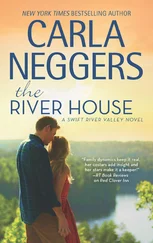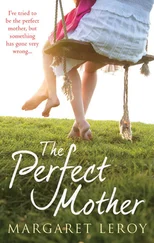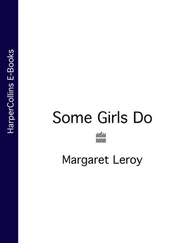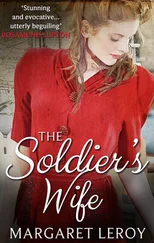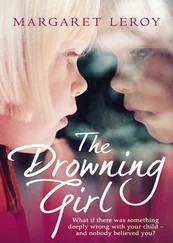‘Is it OK if I quote you on that, Ginnie? This idea that more and more women enjoy sex for itself and kind of keep it separate? I can quote you?’
I tell her, yes, she can quote me.
She thanks me profusely and seems to be happy enough.
I put down the phone with a flicker of guilt about the women who’ll read the things I’ve said—thought up at the end of a tiring workday while the dinner was burning. They surely deserve better.
I open the window to let out the burnt smell. A blackbird is singing in the pear tree in my garden. I stand there for a moment, listening to the blackbird’s lavish song, leaning on the window sill, thinking about the last time I had a one-night stand. Quite a long time ago now. It was just before I met Greg: an attractive paediatrician I met at a conference on attention deficit disorder seduced me by pretending to read my palm. I loved his touch as he made to trace out my life line, as if he’d discovered a new erogenous zone: that was the best bit really. The sex was pleasant enough—but the next morning, when we made love again before the plenary session, it took him for ever to come, and afterwards he complained he was getting a cold and sent me out to buy Lemsip. When we said goodbye, I asked for his phone number—not really wanting to see him again, just feeling it was only polite to ask—and he said, It’s in the phone book. I remember driving home down the motorway, tired and rather hungover: and noticing in the mirror in the motorway service station that there were mascara smudges under my eyes and I looked like I was crying.
I wonder if that was really why I married Greg—to get away from all those complications, the unfamiliar beds, mismatched desires, awkwardness about phone numbers. It was such a relief for everything to be settled. And choosing Greg was surely a good decision. I tell myself we have a solid marriage: that it really doesn’t matter that we haven’t made love for years.
I hunt in the fridge for milk. There’s just an inch left in the bottle. I top it up from the tap and start again with the sauce.
Greg is there already, parked outside the school. He gets out of his car. From a distance he seems the perfect academic—tall, thin, cerebral-looking, with little wire-rimmed glasses. He never seems to age, though his hair, which was reddish, is whitening.
‘Are you OK? ’ I ask him.
‘Not exactly,’ he says. He has a crooked, rueful smile. ‘It was the Standards and Provisions committee this morning.’
The exhibition is in the art suite, up at the top of the building. We go into the first room. The place is crowded already, and crammed with sculptures and paintings, the whole room fizzing with colour. I’m dazzled by this marvellous multiplicity of things—harsh cityscapes, bold abstracts, masks, pottery, flowers. Beside us a boy with a baseball cap and a laconic expression is standing in front of a painting, his arm wrapped round his girlfriend. ‘Is this the one with me in?’ he says: his face is pink and proud. I feel an instant, surprising surge of tenderness: like when I used to weep embarrassingly at infant school carol concerts. There are certain startling emotions—rage at whatever threatens your child, or this surging tenderness, or fear—that you only really feel when you have children. I talk about this sometimes with Max Sutton, my lawyer friend from university, when we meet up over a glass or two of Glenfiddich and compare lifestyles—mine, domestic, anxious, enmeshed: his, bold and coolly promiscuous. He’s travelled widely, been to Haiti, Colombia—nothing seems to throw him.
‘To be honest, Ginnie, I never feel fear,’ he says.
‘You don’t know what fear is till you have children,’ I tell him. ‘It’s your children who teach you fear.’
We’re offered Chardonnay, and cheese straws made in Food Technology that crumble when you bite them. Mr Bates, Molly’s art teacher, comes to congratulate her; he has a single earring and looks perpetually alarmed. Cameras whir and flash as embarrassed students are photographed.
Eva is there, in red crushed velvet from Monsoon.
‘Molly! Your pictures are wonderful. Are you going to be like Ursula, do you think? You’ve certainly got the gene. Ginnie, I love Molly’s stuff! ‘
We hug. I’m wrapped in her capacious arms and her musky cedarwood scent. We’ve been close since the time we first bonded, in a moment of delicious hysteria at antenatal class, when I was pregnant with Amber, and Eva was having Lauren and Josh, her twins. It was during the evening when you could bring your partner, and some of the men, seeking perhaps to assert a masculine presence in this too-female environment, were pronouncing on the benefits of eating the placenta: they claimed it was full of nutrients. I saw that Eva was shaking with barely suppressed laughter and I caught her eye and we had to leave the room.
I tell her about the Cosmopolitan journalist.
She grins. ‘I used to love Cosmo,’ she says. ‘Now I buy those lifestyle magazines—you know, forty-nine things to do with problem windows.’
‘But, Eva, you haven’t got problem windows.’
‘I’m working on it,’ she says.
‘Mum,’ says Molly, ‘you’ve got to see my stuff.’
Her display is in the second room: she pulls Amber and me towards it. I look round for Greg, but he’s met a woman from his department, an earnest woman with wild grey hair who lectures in Nordic philology: she has a daughter here. They’re having an urgent discussion about spreadsheets.
‘I’ll be right with you,’ he tells me, but he shows no sign of following us.
‘Mum, come on,’ says Molly. ‘I want you to see my canvas.’ She has a look she sometimes had as a child, when she would tug at me, especially after Amber had arrived and she couldn’t get enough of me: intent, with deep little lines between her eyes.
We go into the second room. Her display is in the corner, facing us as we enter—her sketchbooks and pottery heaped on the table, and behind them the canvas, nailed up on the wall. I stare at the painting. It’s huge, taller than me, so the figures are more than life-size. I don’t know how she controlled the proportions, how she made it so real. It’s based on a photo from my childhood—me and Ursula and our mother and father, in the garden at Bridlington Road. I don’t know who took it, perhaps a visiting aunt. It’s a rare photo of all of us together, and we look just like a perfectly normal family. It was one of a heap of old photos that Molly found in the kitchen cabinet: she was hunting around for something to paint for her final A-level piece. ‘It has to be about Change,’ she said. ‘I ask you. I think it’s a freaky topic. Change is totally random. I mean, it could be anything .’ She was pleased when she found the photos of me and Ursula: she loved our candy-striped summer frocks, our feet in shiny bar shoes. The two of us would stand to attention with neat cheerful smiles, every time anyone pointed a Kodak in our direction. ‘Look, you’ve got parallel feet,’ said Molly. ‘Amber, look, it’s so cute. In every picture their feet are kind of arranged.’
The photograph was black and white, but the painting is in the strong acrylic colours Molly loves; our skin in the picture has purple and tangerine in it. The photograph may have made her smile, but the picture she’s painted has an intensity to it. She has quite a harsh style, like an etching, the lines and structure of people’s faces exaggerated, so that they look older than they are: and she’s seen so much that was only subtly there in the photograph, that was just a hint, a subtext. My mother, her forehead creased in spite of her smile. My father, a looming presence, his shadow falling across us: my father, who was a pillar of the community, a school governor, a churchwarden, a grower of fine lupins: and I think how shockingly glad I was when he died. Ursula and me, eight and six, with our parallel feet in their shiny shoes: not wanting to step out of line. I see myself then, my conscientious smile, my six-year-old hope that if I was good, stayed good, everything would be all right. I wonder if Molly has brought to this painting some knowledge she has of my family. Yet I’ve told them so little, really, even though in my work I always maintain that families shouldn’t have secrets. Maybe Molly’s gleaned something from the absolute rule I have that there’s no hitting in our family: or from the things I’ve said about marriage, the advice I so often feel a compulsion to give. The very worst thing in a man is possessiveness. Don’t ever imagine that you can change a man. Promise me—if he’s cruel or hits you, that’s it, it’s over, you go straight out of that door. Promise me. Yeah, yeah, they’ll say, glancing at one another, with a look of complicity, of ‘There she goes again’, indulging me: We know, Mum, you’ve told us.
Читать дальше



